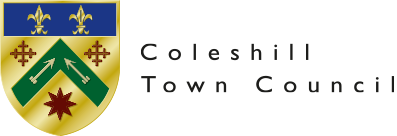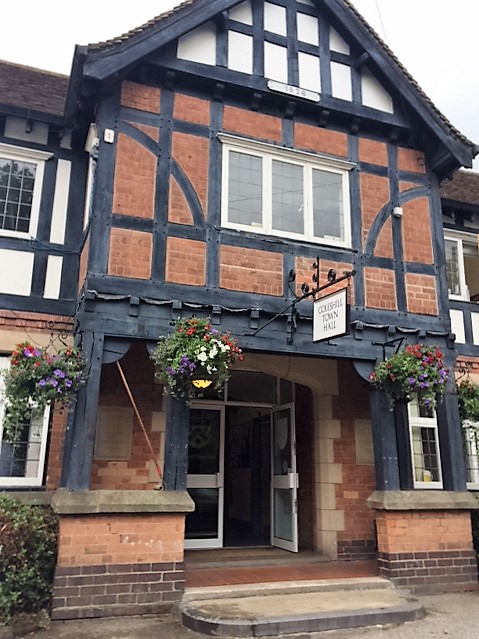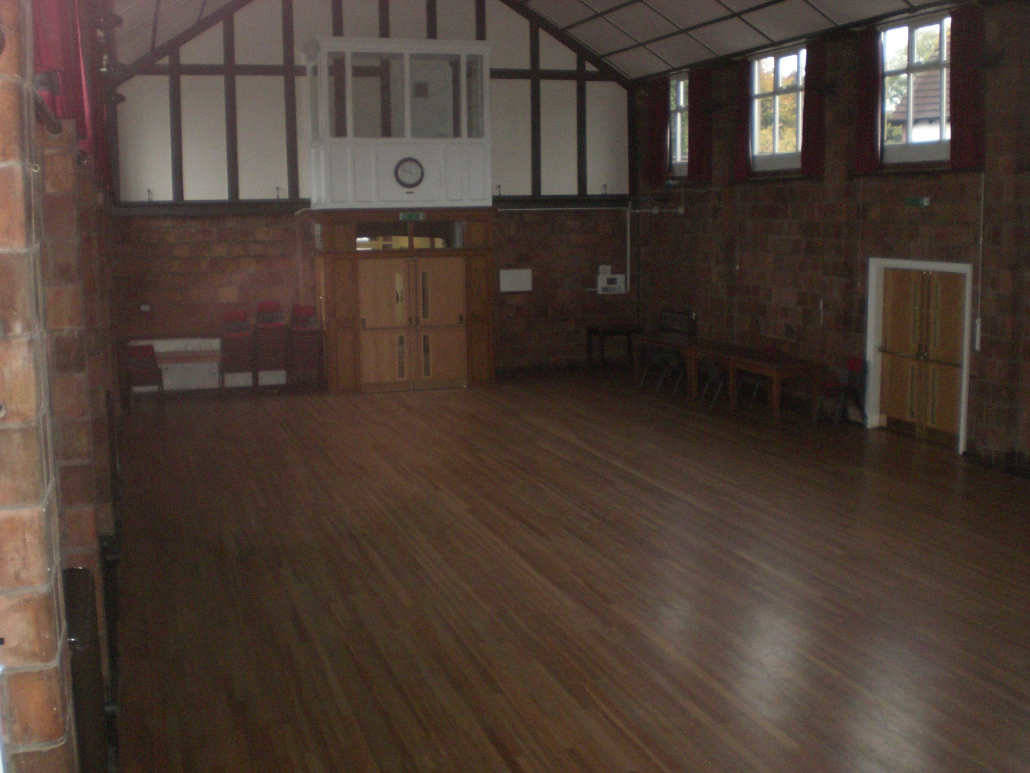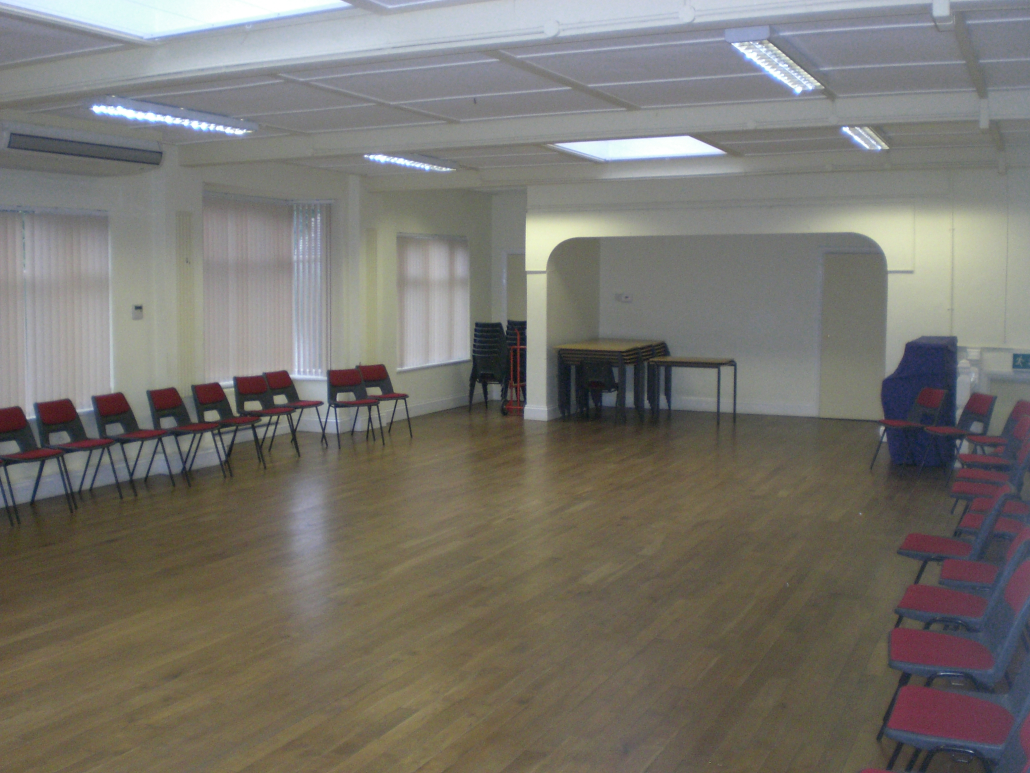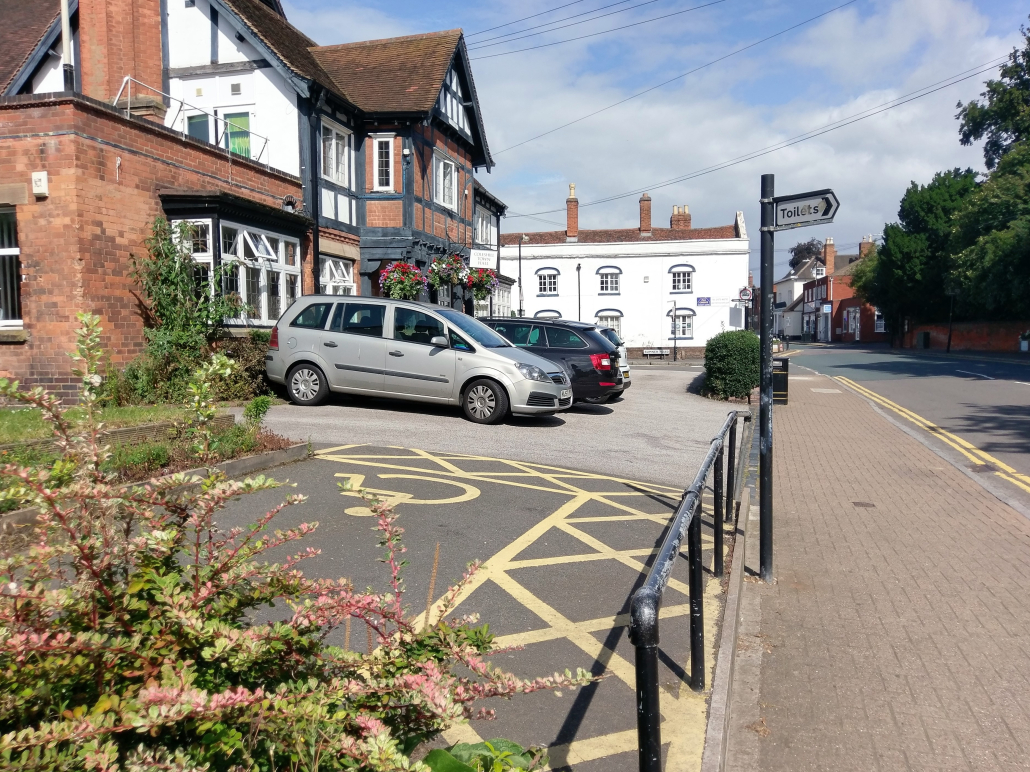The building of Coleshill Town Hall was completed on 28th November 1925 by John Sumner. Five years later the then Sir John Sumner established a Trust under which ten houses were built in the town for the use of ladies in reduced circumstances.
Alfred Fifield was a wholesale green grocer who was one of the benefactors in the town in the 20s. He paid for uniforms for the Coleshill Town Band, kitted out the Coleshill United Football Club and was also a President of the Coleshill Cricket Club. He paid a substantial donation into the Town Hall building fund (although not as much as John Sumner’s contribution) and so helped to get the building completed.
The Town Hall was officially opened by newspaper magnate Sir Edward Iliffe on 17 June 1926. For many years the Iliffe family controlled newspapers in Birmingham and Coventry, including the Birmingham Post, the Birmingham Mail and the Coventry Evening Telegraph and were also part owners of the Daily Telegraph. Sir Edward Iliffe also represented Tamworth in Parliament.
The Hall was established from, at least in part, public subscription and had trusts in place to ensure its use for community purposes throughout its 20th century life. The Hall was operated by the Parochial Church Council, administering it on behalf of the community.
Some voluntary organisations have used the building from when it was first built. For instance, the Coleshill Operatic and Dramatic Society, which still performs on its impressive stage each year, moved its base from the early years of operation of the building.
The hall was used by the local magistrates, sitting at what were called Petty Sessions. They had such summary justice at their disposal, should they deem an offence not serious enough to refer to a higher court. Typically it would be applied in cases of drunkenness or vagrancy.
Meriden Rural District was a rural district of Warwickshire, England, which existed until 1974 with its headquarters based in Coleshill and some of its officers based in the building in the 70s. The district was abolished in 1974 under the Local Government Act 1972. Part of it to the south was merged into the new Metropolitan Borough of Solihull. The part that included Coleshill was merged with the Atherstone Rural District to become North Warwickshire Borough.
In the early 90s, the Parochial Church Council announced its hope of being able to get rid of its responsibility for the Town Hall. The sale in 2001 to the Coleshill Town Council was as a result of around 10 years’ negotiations, seeking a way forward to have the building stay as a community asset.
Coleshill Town Council operated its offices on the ground floor but agreed a licence with Coventry University Enterprises for the use of the first floor offices in 2008. This provided a new Business Centre offering a wide range of support to entrepreneurs looking to start or grow their own business. A dedicated business mentoring service, seminars and workshops, particularly focused on early stage, or ‘pre-incubation’ businesses was the focus service delivered by Coventry University Enterprises. Refurbishment work to assist the University offices was completed by March 2009 funded by regional development agency Advantage West Midlands, which provided £170,000 capital investment through its market towns initiative. However, the three year lease was not extended.
In 2012 the Coleshill Community Hub commenced occupation of the vacant first floor offices. This is part of the North Warwickshire Borough Council Hub network and provides local people with access to services, advice and support. It is run through an independent charity, set up by Coleshill Town Council. The Hub offers a computer suite, a meeting room and a kitchen.
There are a number of separate rooms with their own character. The main Fifield Hall takes its name from Alfred Fifield who had donated to create the opportunity to building the facility. Fifield Hall is now a popular venue for wedding receptions.
The Old Courtroom takes its name from the fact that this was the room used in the past for court proceedings.
The Hudson Room is named after Father George Vincent Hudson, a Roman Catholic priest and one of the benefactors of the Town, who provided a number of care homes for it. Many of these are still in operation to the south of the town. This small meeting room is used by local businesses in the town as well as for some Coleshill Town Council meetings.
The First Floor offices are known as the Sumner Suite, after Sir John Sumner, a philanthropist and benefactor of Coleshill. John Sumner’s family make their fortune through the Typhoo tea brand. In 1930, Sir John Sumner established a Trust under which ten houses were built for the use of ladies in reduced circumstances. That is also why the adjoining road off the High Street that runs down the side of the Town Hall building carries the name of Sumner Road.
Positioned on the busy High Street in Coleshill, the Town Hall is in a great location with good public transport links and limited free parking. The Fifield Hall itself has a great feel to it with high ceilings and oak beams and a large screen projection system.
Currently, the Town Hall houses the Town Council Office, the Community Hub and two private businesses. It plays hosts to hirers from as wide as the Coleshill Drama Group, dance and fitness groups to the West Midlands blood donating service.
